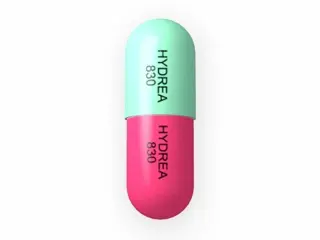Cancer

Find effective cancer medications and supportive care products to aid in treatment and recovery. Shop trusted pharmaceutical options designed to support cancer patients throughout their journey.
The category of cancer medications includes drugs used in the treatment and management of various types of cancer. These drugs work by slowing the growth of cancer cells, stopping them from dividing, or boosting the immune system to fight cancer. Many medicines are available, and they differ based on cancer type, stage, and patient health.
Aldara (imiquimod) is a topical cream mainly used for skin cancers and precancerous lesions. It works by stimulating the body's immune response, helping to fight abnormal skin cells. Aldara is often prescribed for superficial basal cell carcinoma and actinic keratosis. It is applied directly to the affected area, which helps target the cancer cells locally. Side effects may include redness, itching, or swelling.
Alkacel contains active compounds that act as alkylating agents. These substances damage the DNA of cancer cells, preventing them from reproducing. Alkacel is typically used in the treatment of blood cancers such as lymphoma or leukemia. It should be used under strict medical supervision due to possible side effects like nausea, fatigue, or low blood counts.
Armotraz is primarily a chemotherapy drug containing antracycline or taxane derivatives used in breast cancer and other solid tumors. It inhibits cell mitosis and leads to cancer cell death. Side effects are common and include hair loss, nausea, and lowered immunity. Regular monitoring during treatment is important to manage any side effects.
Capnat is used for advanced cancers and functions as an antimetabolite. It interferes with DNA synthesis, mainly used in gastrointestinal cancers or breast cancer treatment. Patients may experience gastrointestinal discomfort or fatigue. Capnat is often part of combination therapy.
Casodex (bicalutamide) is an androgen receptor blocker used in prostate cancer. It works by blocking male hormones that stimulate prostate cancer growth. Casodex is administered orally and is often combined with other therapies like hormone therapy. Common side effects include hot flashes, weakness, and liver function changes.
Hydrea (hydroxyurea) is a chemotherapy agent used in blood cancers like chronic myeloid leukemia and melanoma. It acts by inhibiting DNA synthesis, slowing the growth of cancer cells. Hydrea is taken orally and requires regular blood tests to monitor blood counts. Side effects may include anemia, low white blood cells, or mouth ulcers.
Leukeran (chlorambucil) is an alkylating agent used for chronic lymphocytic leukemia and some lymphomas. It interferes with DNA replication, suppressing cancer cell proliferation. Leukeran is usually taken orally. Side effects include nausea, lowered immunity, and increased risk of infections.
Methotrexate is a folic acid antagonist widely used in various cancers like leukemia, breast cancer, and lymphoma. It blocks the synthesis of DNA and RNA by inhibiting an enzyme called dihydrofolate reductase. Methotrexate can be given orally, intravenously, or intramuscularly depending on the cancer type. Side effects include mouth sores, liver toxicity, and bone marrow suppression.
Nolvadex (tamoxifen) is a selective estrogen receptor modulator mainly used in breast cancer treatment. It blocks estrogen's effects in breast tissue, slowing or stopping tumor growth. Nolvadex is often prescribed as long-term therapy to prevent cancer recurrence. Common side effects include hot flashes, fatigue, and increased risk of blood clots.
Xeloda (capecitabine) is an oral prodrug that converts into fluorouracil in the body. It is used in colorectal, breast, and stomach cancers. Xeloda works by interfering with DNA synthesis, leading to cancer cell death. Side effects often include diarrhea, hand-foot syndrome, and nausea. It is frequently combined with other chemotherapy drugs.
Zofran (ondansetron) is not a chemotherapy drug but is crucial in cancer care. It prevents nausea and vomiting caused by chemotherapy or radiation therapy. Zofran is taken orally or intravenously before or after cancer treatments to improve patient comfort and adherence to therapy.
Overall, cancer medication needs careful management. Each drug has specific uses, mechanisms, and possible side effects. Doctors tailor treatments based on individual patient needs. Combining drugs from this list is common to increase effectiveness. Close monitoring ensures the best results with manageable side effects. Always follow medical advice when using cancer medications.









